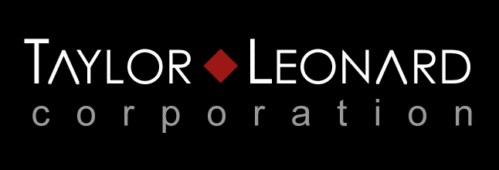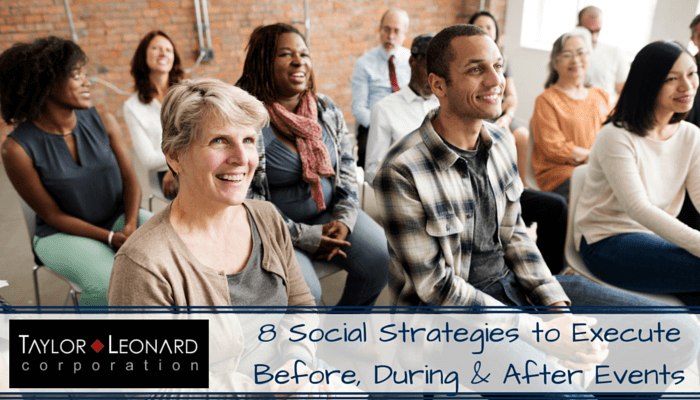Spring has sprung! Step boldly out of hibernation with these 8 social strategies to execute before, during and after you attend [and/or host] another event. Adopt these strategies to maximize your exposure and to give your business a B.O.O.S.T.™:
Build Your Brand
Optimize Relationships
Obtain More Leads
Secure Thought Leadership Space
Tap Into New Markets
Before the Event … Ensure Your Digital Presence is A.L.I.V.E.™ (Accurate, Locatable, Impactful, Value-Based, and Engaging)
1) Tune Up Your Website
Assuming you have a website (hint, hint), it can be a powerful marketing tool. In preparation for events, ensure your site is mobile-friendly (check here), easy to locate (type your business name in a search engine – is your website’s link the first to show up?), and that the content is compelling and current.
2) Get Active on Social Media
Social media helps you to connect and engage with your peers, partners and prospects, as well as build brand awareness and trust. Know where your audience hangs out virtually and establish a presence there [if you haven’t already done so].
3) Promote the Event
Social networks like Facebook, Twitter and LinkedIn can be extremely helpful to promote events you’re either hosting or attending. Thousands of individuals are one click away. But don’t just talk about your event, “WOW” followers with creative visual designs using a tool like Canva. Need a landing page containing the event details and registration options? Eventbrite will do the trick. And, don’t forget to give “shout outs” to sponsors, speakers and organizers of the event (use handle @ to mention people on Twitter). Doing so will expand your reach to their followers; exponentially multiplying your visibility!
During the Event … Engage & Connect
4) Establish a #Hashtag
Whether you’re hosting a conference, webinar, or small networking event, a dedicated hashtag brands the event, builds exposure, catalogs the event, and connects participants. As Host, consider including the hashtag and the speakers’ Twitter handles on marketing and program materials to make engagement during the event easy. Also, encourage the speakers to include the hashtag in their presentation slides to further support social engagement. During the event, respond, retweet, and/or like communications in real-time.
5) Connect With Attendees
LinkedIn is a powerful relationship development tool. Imagine using the mobile app to connect with people as you’re meeting them at the event. As you’re winding down a short conversation, request permission to connect. “Hey Sue, I really enjoyed chatting with you. Do you mind if I send you a LinkedIn connection request? I’d love to stay in touch.” This gives you one less thing to do when you get back to the office and capitalizes on the energy of the event. Want to take a softer approach? Follow Sue on Twitter or like her Facebook page. She’ll be grateful for your support and will likely return your thoughtful gesture.
After the Event … Recap & Follow-Up
6) Invite People You Met to Re-Connect
24-48 hours following the event, use an email marketing platform (like Mailchimp or Zoho) to follow-up with attendees. Thank participants for attending your event. Acknowledge and thank your sponsors and speakers and include links to their websites and social media profiles, as well as to yours.
If you attended the event, examine the stack of business cards you collected and determine the appropriate next step(s) in your relationship development process. If (and only if) you received permission from people you met to be added to your email marketing campaign, send them an initial communication.
7) Recap the Event
Use content you tracked through the event hashtag to publish a “best of” blog on your website. Recap highlights and post the blog link on your social media sites. Want increased engagement? Incorporate Twitter handles and @ mention sponsors, speakers, etc. It will not only allow you to create chatter on social networks beyond the event, but will also drive traffic to your website.
8) Get Feedback & Examine Ways to Collaborate
Send out an e-mail, questionnaire, or survey to get feedback from the attendees. Free tools like Survey Monkey and Survey Planet make collecting feedback easy. Do not neglect to thank guests for coming and invite them to share thoughts and favorite moments from the event. The feedback you receive will be valuable in measuring the effectiveness of your efforts and will provide guidance on improvements to incorporate for future events.
Bottom-line … events are an excellent marketing and relationship development tool! Incorporating your personal touch and social engagement increases exposure for your brand and plants seeds for lead generation. Failure to effectively connect, engage and follow-up with the participants before, during and after events will result in missed opportunities. Whether you’re attending or hosting an event, adopting these 8 social strategies will B.O.O.S.T.™ your presence for business success.
***
Kelly Leonard is a speaker, trainer, award-winning CEO, and former Fortune 500 VP. Prior to becoming CEO of Taylor-Leonard Corporation (T-LC), Kelly held leadership positions with GE Capital, Kaiser Permanente, and PriceWaterhouseCoopers. Currently, Kelly oversees T-LC’s training and business development practices. Additionally, Kelly is the Host and Executive Producer of the Small Business University (SBU); a monthly collaboration betweenMontgomery Community Media, Mid-Atlantic Federal Credit Union, the U.S. Small Business Administration Washington Metropolitan Area District Office,Washington Business Journal, and the Maryland Women’s Business Center. These events bring entrepreneurs, small business owners, government leaders, and innovators together to network, collaborate, and share best practices to stimulate regional economic development. If you are located in Metropolitan Washington-DC area, check out the next SBU and put the 8 social strategies to the test!

